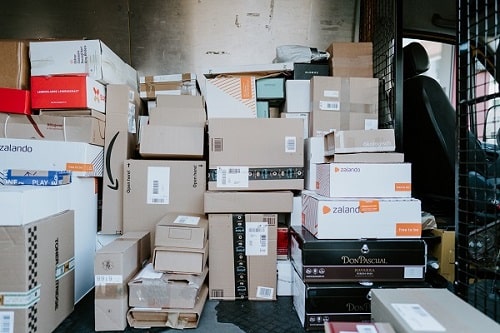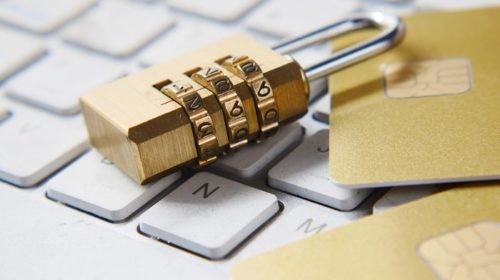
Virtual Address and PO Box: crucial differences that remote workers need to know
Looking for privacy, professionalism, and mail management, the number of remote workers seeking the benefits of a virtual address or PO box grows every day.
However, it’s important to understand the distinction between a virtual address and a PO box as each of them offers distinct benefits.
Whether you’re a freelancer, blogger, or digital nomad, selecting the right solution can enhance your business image and protect your personal information.

Table of contents
- Overall differences between a virtual address and a PO box
- What is a virtual address
- Is a virtual address a real address?
- Are virtual addresses legit?
- What are the benefits of a virtual address space?
- What are the cons of a virtual mailbox?
- Can I open a bank account with a virtual address?
- Is a virtual mailbox better than a PO Box?
- Is it a good idea to have a virtual mailbox?
- Who should opt for a virtual address instead of a PO box?
- What is a PO box?
- Are P.O. Boxes legit?
- Why do people use PO Box instead of address?
- What are the disadvantages of a PO Box?
- Is it OK to use a PO Box as an address?
- Is a PO Box safer than an address?
- Can you use a PO Box for everything?
- Can I use a P.O. Box for a bank account?
- Who should opt for a PO box instead of a virtual address?
- Summary
- FAQ
This page contains affiliate links. If you purchase through our links, we get a commission at no cost to you. Read the full disclosure here.
Overall differences between a virtual address and a PO box
Virtual addresses offer valid physical mail addresses with custom services such as mail scanning and forwarding for remote workers and businesses seeking professionalism and privacy in today’s digital age. A PO box, on the other hand, provides a physical mailbox located at a post office or mailbox store.
| Are you looking for the perfect virtual address solution in the US for your business or personal needs? What if I tell you that you can have a physical street address, add up to 10 companies/names, ship physical mail worldwide, and a lot more benefits for less than 33 cents per day? So wait no longer to go read our complete US Global Mail review to check all the details! |
4 Main differences between a virtual address and a PO box

1) Mail Handling
A virtual address typically offers mail scanning and forwarding, and digital management, while a PO box requires manual pickup.
2) Privacy
Ideal for remote workers and freelancers, a virtual address offers greater privacy, as it does not disclose your personal address. A PO box provides privacy as well, but on the other hand, it requires visiting a physical location.
3) Professionalism
A virtual address will enhance your online business’s professional appearance, while a PO box will appear less professional. So depending on your business needs, it might be a huge downside.
4) Location
Virtual addresses can be located in various regions, enhancing flexibility and increasing business productivity. However, a PO box is tied to a specific physical location, limiting geographic flexibility.
Choosing between these options depends on your specific needs, preferences, and the level of digital versus physical mail management required.
Provided with that, let’s take a deep look into what is a virtual address and what is a PO box in detail to help you decide which option is the best for your online business or remote worker needs.
What is a virtual address?
A virtual address is a professional mailing address that remote workers, individuals, and businesses can use without having a physical office space.
This address can even be in a prestigious business district, enhancing the company’s image.
Virtual address providers typically receive your mail, which is then either scanned and made available digitally or forwarded to a physical location of your choice.
It’s an ideal solution for remote workers, freelancers, and businesses seeking to maintain privacy, project a professional image, and manage mail efficiently without the need for a physical office space.
Is a virtual address a real address?

A virtual address is a real-world address, often located in a prestigious or central area, and it’s used for receiving and managing mail on your behalf.
However, what makes it “virtual” is that it’s managed digitally by a service provider. This means that mail sent to the virtual address is typically received, processed, and managed through a digital platform, and you may have options for mail scanning, forwarding, and digital access to your mail content.
In other words, it’s not a physical place where you can visit or welcome customers as otherwise you would do with conventional business headquarters.
So, while the address itself is real, the management of mail is virtual and remote.
Are virtual addresses legit?
Yes, virtual addresses are legitimate. Actually, many remote workers and businesses, especially small ones, use virtual addresses as a legitimate way to establish a professional business presence and manage mail efficiently.
Additionally, using a virtual address for your business is generally perfectly legal as long as you follow the relevant laws and regulations in your jurisdiction.
With this in mind, it’s essential to ensure compliance with local business registration and tax laws.
Also, some jurisdictions may have specific requirements or restrictions on the use of virtual addresses for certain business activities, so it’s crucial to research and consult with legal or tax professionals to ensure compliance with local regulations.
Suggested reading: How secure are WordPress websites for e-commerce? Pros and cons
What are the benefits of a virtual address space for remote workers?
A virtual address space offers several benefits for remote workers such as freelancers and digital nomads, business owners, travelers, and anyone looking for privacy, security, and productivity when managing their mail.
Here are 6 benefits of a virtual mailbox space:
1) Business Registration
Generally, a virtual address will meet all the legal requirements for business registration, even when operating remotely.
2) Reduces business expenses
Save on the costs associated with maintaining a physical office space.
3) Security & Privacy
Protect against identity theft and maintain personal security by not disclosing your home address and reducing the risk of unwanted solicitations, and even doxxing.
4) Mail management, flexibility, and productivity
Efficiently manage and track incoming mail and packages, often with options for mail scanning and forwarding. Also, you can choose addresses in various locations, allowing geographic expansion without the need for physical offices.
5) Professional image & credibility
Establish a professional business presence with a prestigious or central address to enhance credibility, which can be crucial for gaining the trust of clients and partners.
6) Travel-friendly
Ideal for remote workers who live as digital nomads or any other individuals who travel frequently, as it provides a stable mailing address no matter where on Earth you are or plan to go to. And don’t forget that you can opt to have your mail forwarded to you regardless of where you are. 😉

What are the cons of a virtual mailbox?
Despite their many benefits, virtual mailboxes come with some downsides that might be a dealbreaker for some.
Here are the cons of a virtual mailbox or virtual address:
1) Costs
Virtual mailbox services come with subscription fees, which will be another monthly or yearly expense, depending on which subscription plan you pick.
2) Mail handling errors
Although incredibly unusual, mistakes in mail scanning or forwarding may occur on occasion, leading to delays or lost items.
3) Limited physical access and dependency on providers
Your access to physical mail is reliant on the service provider’s reliability and responsiveness, which may be inconvenient for you if you get too much physical mail.
4) No in-person address
For some local businesses, a physical address may be necessary for customer trust or specific services.
5) Regulatory compliance
In certain industries or locations, utilizing a virtual mailbox could raise legal or regulatory complications.
6) Limited package size
Virtual mailbox providers may have restrictions on the size and weight of packages they can receive. As a result, you may have to pay for more space and even search for a provider with more space flexibility.
7) Privacy concerns
Some individuals and businesses may be worried about third-party access to their emails, even if it is just for scanning purposes.
Can I open a bank account with a virtual address?
It is possible to open a bank account with a virtual address, yes, but it may be more difficult compared to using a physical address.
Banks usually have strict know-your-customer (KYC) and anti-money laundering (AML) regulations, and they often require a physical address for identity verification and mailing purposes. Therefore, the process of opening a bank account with a virtual address may require additional steps and documentation to meet the bank’s requirements.
Many online banks or financial institutions may be more flexible in this regard and accept virtual addresses, but it can vary from one bank or location to another.
It’s essential to check with the specific bank or financial institution you’re interested in to determine their policy regarding virtual addresses and whether they will accept it for account opening.
Is a virtual mailbox better than a PO Box?
Whether a virtual mailbox is better than a PO box depends on your needs and preferences. Virtual mailboxes offer digital mail management as well as mail scanning. It also can project a more professional image, making them ideal for remote workers, businesses, and digital nomads.
On the other hand, PO boxes provide a physical location for mail pickup and offer privacy but may lack digital convenience.
However, it’s worth mentioning that some virtual mailbox providers like US Global Mail have plans in which you’re allowed to pick up your mail in person, in case you want it.
With this in mind, choose the one that aligns with your priorities: digital access, flexibility and productivity, and professional appearance or physical mail receipt and privacy.
Is it a good idea to have a virtual mailbox?
If you’d like to have more privacy, save time, and perhaps register a business, then yes, having a virtual mailbox is generally a good idea.
Virtual mailboxes are widely used for various purposes, usually to:
- protect privacy
- bring credibility and legitimacy to freelancers, e-commerce, and other online businesses
- mail management for digital nomads and remote workers
- help business growth strategies such as geographic expansion.
If any of the items listed above seems interesting to you, having a virtual mailbox will probably bring satisfactory results in your daily professional and/or personal life.
Who should opt for a virtual address instead of a PO box?
Opt for a virtual address if you:
- want a professional business image
- need the flexibility of digital mail management
- are a remote worker, freelancer, or digital business
- value privacy and don’t want to disclose your personal address
- require mail scanning and forwarding services
- prefer the convenience of online mail access.
Suggested reading: How secure are WordPress websites for e-commerce? The pros and cons
| Are you looking for the perfect virtual address solution in the US for your business or personal needs? What if I tell you that you can have a physical street address, add up to 10 companies/names, ship physical mail worldwide, and a lot more benefits for less than 33 cents per day? So wait no longer to go read our complete US Global Mail review to check all the details |
What is a PO box?

A PO box (short for Post Office box) is a secure and private mailbox typically located within a post office or at a commercial mailbox store. It allows individuals or businesses to receive mail and packages at an address separate from their home or office.
Although PO boxes offer a level of security for mail, they usually require in-person visits to collect mail. They also lack the convenience of digital mail management, and mail scanning and forwarding, which a virtual address can provide.
PO boxes are identified by a unique box number and are a practical choice for those who value their privacy, need a stable mailing address, or simply wish to maintain anonymity.
Are P.O. Boxes legit?
Yes, P.O. Boxes are established and reputable services provided by official postal authorities, making them a legitimate option for managing mail.
They are provided by postal services, such as the United States Postal Service (USPS), and private mailbox stores.
Given that PO boxes are commonly used by individuals and businesses for various purposes, including privacy, convenience, and security, you can trust that PO boxes are a secure and private way to receive mail and packages.
Why do people use PO Box instead of address?
People use P.O. Boxes instead of their home or business address for various reasons, including:
- Privacy: PO boxes help maintain privacy by not revealing the physical location of the recipient.
- Digital nomads and remote workers: not everyone has a fixed location to receive physical mail. For those who are constantly changing places, renting a PO box is a solution to still be able to receive mail.
- Security: They offer a secure and controlled environment for mail receipt, reducing the risk of theft or vandalism.
- Business: Some businesses use P.O. Boxes to separate their personal and business mail as well as establish a more professional image.
- Remote Location: In rural areas, where home delivery may not be feasible, PO Boxes provide a reliable way to receive mail.
- Anonymity: P.O. Boxes can be used for more anonymous receipt of mail, which is important in certain circumstances.
- Travel: Travelers may use PO boxes from time to time to maintain a stable address for mail receipt when they’re absent from their homes.
What are the disadvantages of a PO Box?
While PO boxes offer a secure and private means of receiving mail, they come with their share of drawbacks.
Here are some disadvantages of using a PO Box:
- No physical presence: PO Boxes lack a physical office location, which may be required for certain businesses.
- In-person pickup: Mail must be collected in person, which can be inconvenient if you’re frequently away or unable to visit the post office (as it may very well be the case for digital nomads and remote workers).
- Limited package handling: PO Boxes may not accept packages from all carriers, and larger items may not fit or may require a more expensive subscription fee.
- No mail scanning: Unlike virtual mailboxes, PO Boxes do not offer mail scanning or digital mail management.
- Privacy concerns: Some individuals may have concerns about government or institutional access to their P.O. Box.
- Operating hours: Access to a P.O. Box is typically restricted to the post office’s operating hours.
- Not suitable for all businesses: Some businesses may require a physical address for trust and credibility.
Is it OK to use a PO Box as an address?
It depends on what you need a P.O. Box address for, as it may not be suitable for certain needs. For instance, using a PO Box is generally acceptable and even advantageous in scenarios where privacy, security, or anonymity are paramount.
It’s a preferred choice for individuals who want to separate their personal address from their business or for those who reside in areas without reliable home delivery services.
Not to mention that renting a PO Box may be an essential decision for content creators and influencers who want to receive physical mail from brands, online friends, and followers, but are (rightfully) concerned about disclosing their home address.
However, it may not be ideal for businesses aiming to establish a physical presence, receive large packages, or provide a trustworthy address for clients and business partners.
Is a PO Box safer than an address?
Generally speaking, yes, a PO Box can indeed offer certain security advantages over using a physical residential or business address.
After all, we, unfortunately, live in a world full of unstable – and many times dangerous – individuals so, more often than not, it’s better not to disclose your home address to strangers.
However, the level of security of a PO Box also depends on the specific post office or mailbox store’s practices and the diligence of the box holder. In other words, it’s important to choose a reputable service provider for guaranteed security.
Can you use a PO Box for everything?
There are limitations you must consider when using a PO Box. Although PO Boxes are generally suitable for receiving mail, they may not be suitable for all types of mail or purposes.
Here are some factors to consider:
- P.O. Boxes have limited space and may not accept larger packages. You may need an alternative address for such items.
- Some organizations, such as government agencies, may not deliver official documents to P.O. Boxes.
- While a PO Box can be used for business purposes, it may not provide a professional image or be accepted by all clients and partners.
- If you need a physical location for meetings or customer interactions, just renting a P.O. Box will surely not meet your professional needs.
- Depending on your jurisdiction, there may be specific legal requirements that dictate when a physical address is necessary.
In summary, while a P.O. Box is versatile, it may not cover all your needs, especially if you require a physical presence or deal with certain types of mail and organizations that do not deliver to P.O. Boxes.
Can I use a P.O. Box for a bank account?
Using a P.O. Box for a bank account is generally not recommended. Banks typically require a physical address for identity verification and mailing purposes. While some online banks and financial institutions may be more flexible, many traditional banks will not accept a P.O. Box as your primary address.
It’s important to check with your specific bank or financial institution to determine their policy regarding the use of P.O. Boxes for account opening.
In most cases, though, you’ll need to provide a physical residential or business address for banking purposes.
Who should opt for a PO box instead of a virtual address?
A PO Box is better suitable for you if you:
- are individual or business that prioritizes physical mail receipt
- have time availability and are comfortable with visiting a post office or mailbox store for mail pickup every time you receive a package or letter
- only require a basic, more affordable solution for mail collection and privacy
- are a digital creator or influencer who constantly receives gifts from brands and followers but values your security and privacy.
In Summary
Understanding the distinctions between virtual addresses and P.O. Boxes is essential for remote workers.
While both offer privacy and security, virtual addresses provide digital convenience, professionalism, and flexibility, making them a preferred choice for those aiming to project a credible business image and manage mail efficiently. On the other hand, P.O. Boxes are better suited for those who prioritize privacy and in-person mail pickup.
The choice depends on individual preferences and specific business needs.
Which one is better for YOU?
| Try US Global Mail today to get a physical street address in the US, add up to 10 companies/names, ship physical mail worldwide, and a lot more benefits for less than 33 cents per day with a 100% money-back guarantee. |
FAQ
Yes, packages can be delivered to a virtual address. Service providers of virtual addresses often offer package receipts as part of their services. When a package is delivered to your virtual address, the provider will receive and store it securely. You can then choose to have the package forwarded to your preferred location or manage it digitally.
Using a virtual mailbox to open a bank account may be challenging. Banks typically require a physical address for identity verification and regulatory purposes. While some online banks may be more flexible, traditional banks often do not accept virtual addresses. It’s essential to check with your chosen bank, as their policy on address verification may vary. In most cases, you’ll need to provide a physical residential or business address for banking purposes.
Opening a bank account with a virtual address in the USA can be difficult. Most traditional banks require a physical address for identity verification and regulatory compliance.
Although you may find some online banks that offer more flexibility, it’s essential to check with your chosen bank, as policies vary.
But be prepared to provide additional documentation, and consider using an established mailing address or a physical address if necessary for account approval.
No, a virtual address is not a P.O. Box. A virtual address is a real street address used for mail receipts, often in a business district but managed digitally. In contrast, a P.O. Box is a physical mailbox at a post office or mailbox store.
Virtual addresses provide more services, like mail scanning and forwarding, while P.O. Boxes require in-person pickup. Virtual addresses are often chosen for their professionalism, privacy, and digital mail management capabilities, while P.O. Boxes offer a secure, physical location for mail collection.
Yes, a P.O. Box can hide your home or business address. When you use a P.O. Box, your personal address remains confidential, adding a layer of privacy and security. This can be beneficial for individuals and businesses looking to protect their physical location, reduce unwanted solicitations, and maintain anonymity, especially if they don’t want their home address associated with business activities.
If a package is too large for your P.O. Box, the post office or mailbox store will typically leave a notice in your box. You’ll be instructed to pick up the package at the post office’s counter or loading dock. Alternatively, some locations may offer parcel lockers for larger items. If you receive regular oversized packages, consider inquiring about parcel locker availability, renting a larger mailbox, or using an alternative shipping address that can accommodate larger items.
It depends. Since Amazon uses various carriers that typically require a physical address for delivery like UPS, FedEx, and USPS, you may not be able to have your purchases delivered to your PO box.
However, Amazon has a service called “Amazon Locker” that allows you to have packages delivered to secure, self-service lockers located in various retail locations. This can be a workaround if you only have a P.O. Box, but it depends on the availability of Amazon Locker locations in your area.

READ NEXT:
What Happens If You Don’t Use a VPN? — Online Privacy & Security
Why is the WHOIS database public (and how to hide your personal information)
Posted on October 30, 2023. Last updated on December 8, 2023.


